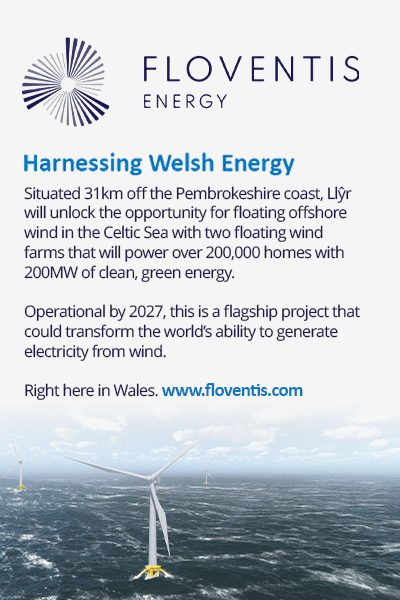
WRITTEN BY:
Rebecca Evans MS
Cabinet Secretary for Economy, Energy and Planning
Welsh Government
Delivering on the First Minister’s priority of green jobs is at the top of my agenda. This is not just about employment figures; it is about shaping a sustainable economy for the future. There is much to be excited about, and by aligning economy, energy, and planning within the same portfolio, we are well placed to drive the change that is needed.
The Welsh Government’s role is not to build all of the green energy infrastructure ourselves. Instead, we must create the right conditions for investment and ensure that businesses have the clarity and confidence to develop the projects that will power our future.
Bringing planning into this portfolio is central to that ambition. Developers have long highlighted the challenges they face in navigating the planning system, and we are now taking some significant steps to improve this process.
I have launched a consultation on full cost recovery for planning applications, which would allow local authorities to retain the full cost of processing applications. At present, planning fees fall well below what it actually costs councils to handle applications. If this change goes ahead, councils will be able to reinvest in their planning teams, which have faced significant cuts over the years. Well-resourced teams will mean a more efficient planning system, providing much-needed clarity and timeliness for developers.
This work is being supported by the new Infrastructure (Wales) Act, which comes into force this year. The Act is designed to make the consenting process more streamlined and efficient, ensuring that decisions are made in a way that supports economic development while protecting the interests of communities and the environment.
When I meet with industry representatives, planning is always high on the agenda. Understanding their experience and hearing directly about the challenges they face helps to shape the changes we are making. It is about creating a system that works for Wales – one that attracts investment while ensuring that development delivers real benefits for people across the country.
One of the ways we can do that is by working with the sector on a potential energy sector deal. This is something I am keen to explore in partnership with industry, looking at how the Welsh Government can help remove barriers that stand in the way of progress. In return, we would expect a clear commitment to delivering maximum benefits for Wales – supporting local supply chains, creating high-quality jobs, and ensuring that economic opportunities stay in Welsh communities.
There are already strong examples of how Wales is leading in the green economy. The Morlais tidal project on Anglesey is particularly exciting. As a community interest company, it represents a model of how innovation and social impact can go hand in hand. Morlais is not only providing a testing ground for cutting-edge tidal technology but also ensuring that the benefits of this investment stay local. This is about more than just delivering renewable energy; it is about creating an environment where Wales can be at the forefront of a growing global sector.
An energy sector deal could take this kind of approach further, ensuring that Wales remains a leader in renewable energy and that communities benefit from the opportunities it brings. By making the planning system more effective, strengthening local supply chains, and working closely with industry, we can support investment and create the conditions for long-term economic growth.
The transition to a greener economy is not just a necessity – it is an opportunity. With the right approach, we can build a more sustainable, resilient economy that delivers good jobs, supports communities, and ensures that Wales remains at the cutting edge of the industries that will define the future.







